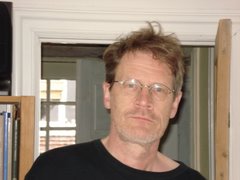I just received a mail from the Program Co-Chairs of the
History of Science Society's meeting in the Washington metro area, 1-4 November, 2007 saying that my paper "Beyond Contextualism: The Concrete Individual as a Focus Point" has been accepted. Here's the abstract:
This presentation investigates the role of the genre of writing about individual scientists (biography) in relation to the writing of historical accounts of science (historiography). From the professional vantage point of history of science, scientific biography is normatively considered an auxilliary genre to science historiography (an ancilla historiae) and as a tool for contextualizing science in history. Such a normative perspective makes it difficult to appreciate the full richness of the genre, however. In practice, biographies of scientists have also been written as contributions to understanding singular lives, e.g., for commemorative and eulogistic purposes, as moral investigations, or as tools for understanding oneself. These generic roles - which have been prominent throughout the history of the genre and are also operative in biographical writing today - may be more or less overlapping in the same biographical work, but their analytical separation may help improve the critical evaluation of the genre, e.g., in biographical book reviewing practice. Most importantly, these generic roles point to a reversal of the function of the ancilla historiae-role of the genre, viz., that the historiography of science can as well be seen as an ancilla biographiae, a mere context for understanding individual scientists, their ambitions and expectations.
The paper is part of a panel session organised by Noretta Koertge titled "Scientific Biography: Constructing the Human Element in the Production of Science". The participants are (in addition to myself): James Capshew (Indiana University), "Portraits of the Sex Researcher: The Cultural Production of Kinsey"; Michael Sokal (Worcester Polytechnic Institute), "Psychology as a Biographer's Tool: Developing Insights into Scientific Careers"; and Noretta Koertge (Indiana University), "Reflections on the
New DSB" (Noretta is Editor-in-Chief of the
New Dictionary of Scientific Biography, an eight volume extension of the original DSB that will appear late in 2007. Here's the session abstract:
Nye's recent article in Isis documents the wide spread interest in the life stories of scientists. From the sidebars in school science books to biographical dictionaries and prize-winning scholarly monographs, scientific biography is an increasingly important genre. The purpose of this panel is to reflect on issues that arise when historians of science write biographies. There are the perennial puzzles about selection, emphasis, the goals of the author, and the interests of the audience that always arise when doing history. We want to focus on current problems and possibilities. (Examples range from the difficulty of describing the technical achievements of recent scientists to concerns about how the unsavory details of a scientist's life may be misused.) Each panelist will make a short presentation and then we hope to involve them and the audience in an open discussion. The participants on this panel are all currently engaged in producing and reflecting on scientific biography.

No comments:
Post a Comment